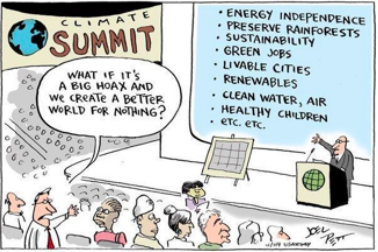Read the following interview to answer question.
Giving Capitalism a Social Conscience
David Bornstein
For more than 40 years, Muhammad Yunus, the Bangladeshi founder of the Grameen Bank and
recipient of the 2006 Nobel Peace Prize, has been asserting that the most powerful way to eradicate
poverty is to unleash the untapped entrepreneurial
capacity of people everywhere. “Poverty is not
created by poor people,” he says. “It’s created by
the system we built. Poor people are like a bonsai
tree. You take the best seed from the tallest tree in
the forest, but if you put it in a flower pot to grow,
it grows only a meter high. There’s nothing wrong
with the seed. The problem is the size of the pot.
Society doesn’t give poor people the space to grow
as tall as everybody else. This is the crux of the matter.”
Yunus has recently written a new book, “A World of Three Zeros: The New Economics of Zero
Poverty, Zero Unemployment, and Zero Net Carbon Emissions,” in which he argues that capitalism is
in crisis and remains moored in a flawed conception of human motivation. He proposes a far more
robust role in the economy for “social businesses,” which he defines as “non-dividend” companies
“dedicated to solving human problems.”
At 77, Yunus shows no signs of slowing down. He reports on an astonishing array of work
he has been involved in — supporting and codeveloping social businesses (often in partnership
with large corporations) in Bangladesh, Brazil, Colombia, France, Haiti, India, Japan, Uganda and
numerous other countries.
“We need to abandon our unquestioning faith in the power of personal-profit-centered
markets to solve all problems and confess that the problems of inequality are not going to be solved
by the natural working of the economy as it is currently structured,” Yunus writes.
“This is not a comfortable situation for anyone, including those who are on top of the social
heap at any given time. Do the wealthy and powerful … like having to avert their eyes from the
homeless and hungry people they pass on the street? Do they enjoy using the tools of the state
— including its police powers and other forms of coercion — to suppress the inevitable protests
mounted by those on the bottom? Do they really want their own children and grandchildren to
inherit this kind of world?”
Fonte: New York Times. Publicado em 10/10/2017. Disponível em: https://www.nytimes.com/2017/10/10/
opinion/giving-capitalism-a-social-conscience.html . Acesso em 06/11/2017. [Excerpt]
